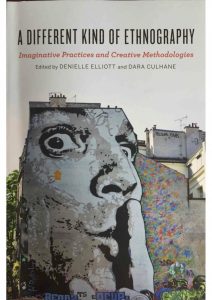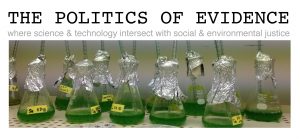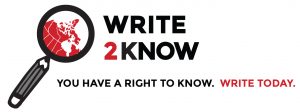Centre for Imaginative Ethnography

The Centre for Imaginative Ethnography is a transnational independent research collective whose five co-curators and forty-four current members include scholars, artists, artist/scholars, activists, and practitioners located around the world. Two of those co-curators include York University Anthropologists Denielle Elliott and Magda Kazubowski-Houston. The CIE offers a space for communication and collaboration, debate and practice, creativity and action generated by experimental and emergent ethnographic methodologies that integrate and fuse creative arts, digital media, and sensory ethnography, and where new ethnographic writing is encouraged in teaching, theory, and practice. The Centre conducts a number of events at York University, and in cooperation with the Department of Anthropology, including our Summer Ethnographic Institute. An example of the engaged ethnography that they encourage can be found in the book A Different Kind of Ethnography: Imaginative Practices and Creative Methodologies (2017, University of Toronto Press), co-edited by Centre co-curators Denielle Elliott and Dara Culhane. Check their website here.
Politics of Evidence Working Group

http://politicsofevidence.wordpress.com
The Politics of Evidence Working Group is a coalition of scholars, scientists, activists, and NGOs concerned with the uses, abuses, possibilities and limits of evidence. Collectively we are committed to examining how evidence, scientific and otherwise, is marshaled in politics, policy making, and everyday life. We take particular interest in the ways that evidence is mobilized in research conducted in the public interest, such as research in the areas of environmental safety and community health.
Beyond highlighting the contexts in which science, technology, and medicine intersect with issues of social and environmental justice, our goal is to activate public interest in the politics of evidence. Our collective work aims to engage broader public participation in the research that helps to define the health of our bodies, communities, and environments by asking questions such as: What forms of evidence count in policy making? What forms of evidence do not count? Whose knowledge counts? Whose knowledge does not count?
By examining these questions through scholarly and public engagement, we aim to both shed light on the silencing of local and indigenous ways of knowing and to interrogate officially sanctioned accounts. As we seek to broaden public participation in research, we advocate for methods that do not reproduce colonial power relations, and for political projects that are designed to challenge dominant ways of knowing in the public sphere. Check their website here.
Borderless Higher Education for Refugees Project/ Centre for Refugee Studies, York University
For some 8.1 million people in the Global South caught in refugee-like situations for ten years or more as an outcome of war, human rights violations, and/or persecution in their home countries (USCRI 2009), attending university or accessing other tertiary degree programs is almost impossible. Refugees who have completed secondary school almost universally voice the desire to attend university.
Education in these camps is limited to primary and sometimes secondary education. There is no opportunity for higher education in the camps. To date, international scholarships to travel to institutions in the Global North remain the predominant scheme to address the need for higher education for only a negligible few. A handful of stellar students (about one percent) may win scholarships out of the camps, but the prospects for the vast majority are slim to none.
BHER aims to reverse this situation by improving opportunities for the tertiary education of long-term refugees by exploring the creation and delivery of on-line courses and supervision, delivered to meet international standards and designed as “portable” methods of study within the unique environment and circumstances of refugee camps.
Write2Know

Who knows what’s in your air, water, and soil? Who can tell you what’s in your food? Who is conducting the research to predict the effects of climate change? Federal scientists funded by Canadian tax dollars are among those generating evidence relevant to public health and safety. This information is crucial to monitoring the health of your body, your community, and your environment. They have been doing this work for decades, amassing large quantities of data in archives and libraries. Their research can give us a long view of social and environmental change.
We believe that people have a right to know about the health of their bodies, communities and environments. The Write2Know Project is a letter-writing campaign that gives members of the public the opportunity to ask federal scientists and Ministers about the results of the Canadian government’s environmental monitoring and scientific research programs.
The Write2Know Project was founded in 2015 to call attention to government-imposed constraints on public access to federal scientists and their research findings, the elimination of essential research programs, and the closure of libraries and archives. These constraints and closures have impacted what Canadians can and cannot know.


